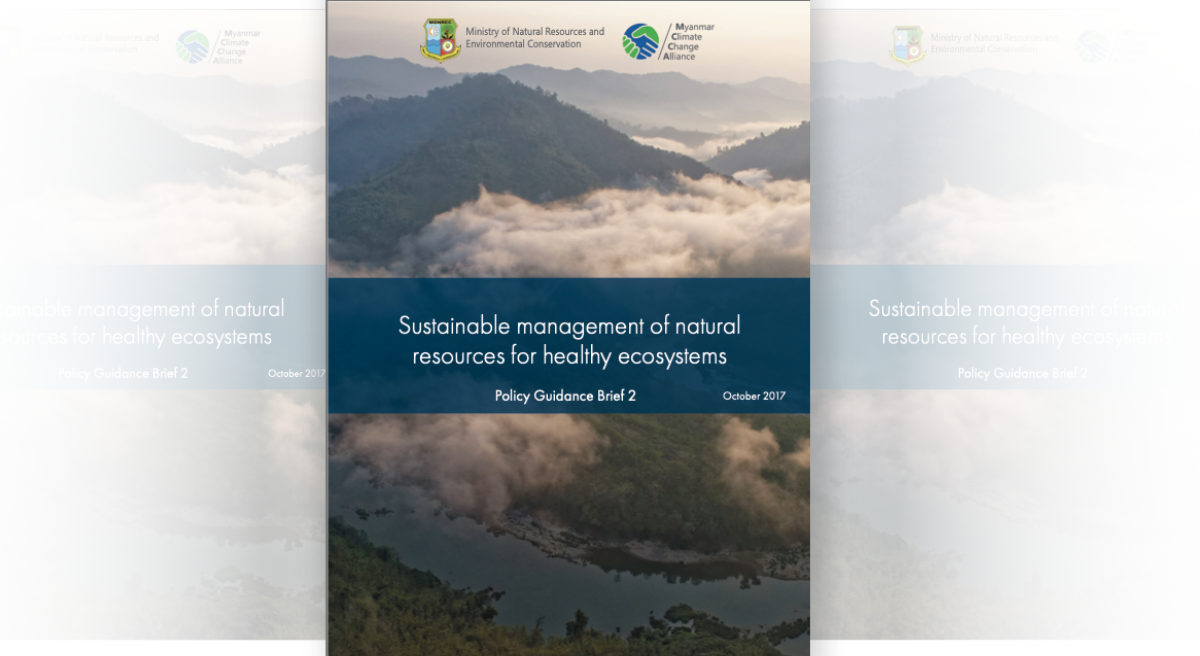Policy Guidance Brief 2: Sustainable Management of Natural Resources for Healthy Ecosystems
The Guidance Brief is a tool to effectively address climate change in Myanmar by aiding the understanding of key sectoral challenges, strategic objectives and specific actions. Myanmar has abundant water resources, species-rich coastal ecosystems and large forest reserves. However, growth of population, economic development and unsustainable use of natural resources result in environmental degradation.
The impacts of climate change are extensive, including:
- Increased risk of forest fires, plant pests and diseases, and desertification.
- Loss of vegetation in mountain regions as a result of rapid-onset events such as floods and landslides.
- Destruction of coastal ecosystems due to strong cyclones, among others.
Moreover, although the country has a significant carbon sequestration capacity, high deforestation rates remain a critical issue. The protection and rehabilitation of the natural capital of Myanmar are the keys to minimize climate risk. The expected results of implementation are:
- Climate change dimensions are incorporated and enforced in environmental and natural resource management policies, rules and regulations, including gender considerations.
- Environmentally sound technologies and good management practices are adopted to improve and maintain forest, water, land and coastal ecosystems, health and services.
- Framework for institutional coordination and multi-stakeholder engagement is established to support access to finance and implementation of responses.
